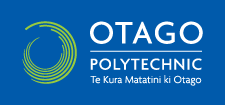E-Activity - Copyright MCQs
e-Learning activity summary | |
|---|---|
| Title: | Developing multiple choice questions (MCQs) based on your own mini copyright scenario or situation |
| 1 - 2 hours | |
| This activity contributes to the completion of the course assignment for assessment or optional activity for certificate of participation. | |
Start here
Stimulus resources
Optional support resources |
| The purpose of this E-Activity is to demonstrate the application of your knowledge of copyright by developing two MCQ questions based on an educational context you describe in your own country. The activity is inspired by the quotation attributed to Yogi Bhajan:"“If you want to learn something, read about it. If you want to understand something, write about it. If you want to master something, teach it." |
Tasks
- Review the stimulus resource links above and search for the web for additional resources which can assist you in achieving the learning outcome actions for this Activity.
- Think about a practical educational situation, for example, a teacher preparing an online course or learner completing an assignment which focuses on two or more aspects of copyright in a digital world.
- Does your proposed copyright situation relate to two or more of: scope, ownership, rights, exceptions or transfer of rights?
- Consider the implications of your own national copyright act.
- Consider possible questions relating to this copyright situation which would demonstrate the application of your knowledge of copyright.
|
Assessment rubric
Competency statements
- Knowledge of copyright: Learner demonstrates knowledge of the basics of copyright by developing two multiple choice questions covering two or more dimensions of scope, ownership, rights, exceptions or transfer of rights evidenced by identifying the correct answer and feedback justifications to the correct and incorrect answers.
- Utility of the teaching / learning resource: Learner demonstrates knowledge and skill in developing MCQs of acceptable quality by adhering to the majority of best practice recommendations for developing MCQs.
- Peer support: Learner provides peer-learning support by objectively evaluating a minimum of three of the same e-Learning activities of fellow students as assigned by the peer evaluation system.
Evaluation criteria
Peer evaluators should:
- Confirm that the content of the post is related to the activity. For example, confirming that the learner registered the correct url for the submission.
- Evaluate the answer using the rubric below according to the criteria of: completeness, knowledge of copyright and learning utility of the questions by applying the guidelines for good MCQ questions.
- Award an overall rating for the post, that is: unsatisfactory, acceptable, excellent.
| Completeness (Weight 0.5) | |
|---|---|
| Not achieved | Learner has not completed the two required questions or provided feedback on correct and incorrect options. |
| Achieved | Learner has completed the two required questions as well as answers and feedback to correct and incorrect options. |
| Merit | In addition to completing all the questions and feedback, the learner has also provided:
|
| Knowledge of copyright (Weight 0.3) | |
|---|---|
| Not achieved | Many errors suggesting that the learner does not understand the basics of how copyright functions. |
| Achieved | A few errors interpreting the application of copyright in the context of the MQC questions, or learner failed to cover a minimum of two dimensions of copyright i.e scope, ownership, rights, exceptions or transfer of rights. (Note that it is not necessary to cover the two items in a single question - each question can focus on a different dimension.) |
| Merit | Exemplary answer. No errors in the application of copyright as demonstrated by identifying the correct answer and quality of the feedback on correct and incorrect answers. Learner has provided sufficient information relating to context to facilitate answering the question and/or avoiding ambiguity. |
| Learning value of the questions (Weight 0.2) | |
|---|---|
| Not achieved | Questions were confusing and many contraventions of suggested good practice for MCQ items, for example:
|
| Achieved | Learner provides adequate context for the MCQ questions and has done a satisfactory job of implementing the requirements for good MCQ items. Only a few errors or suggested improvements to achieve an exemplary question. |
| Merit | Exemplary answer. No errors in the application of copyright as demonstrated by identifying the correct answer and quality of the feedback on correct and incorrect answers. Learner has provided sufficient information relating to context to facilitate answering the question and/or avoiding ambiguity. |
